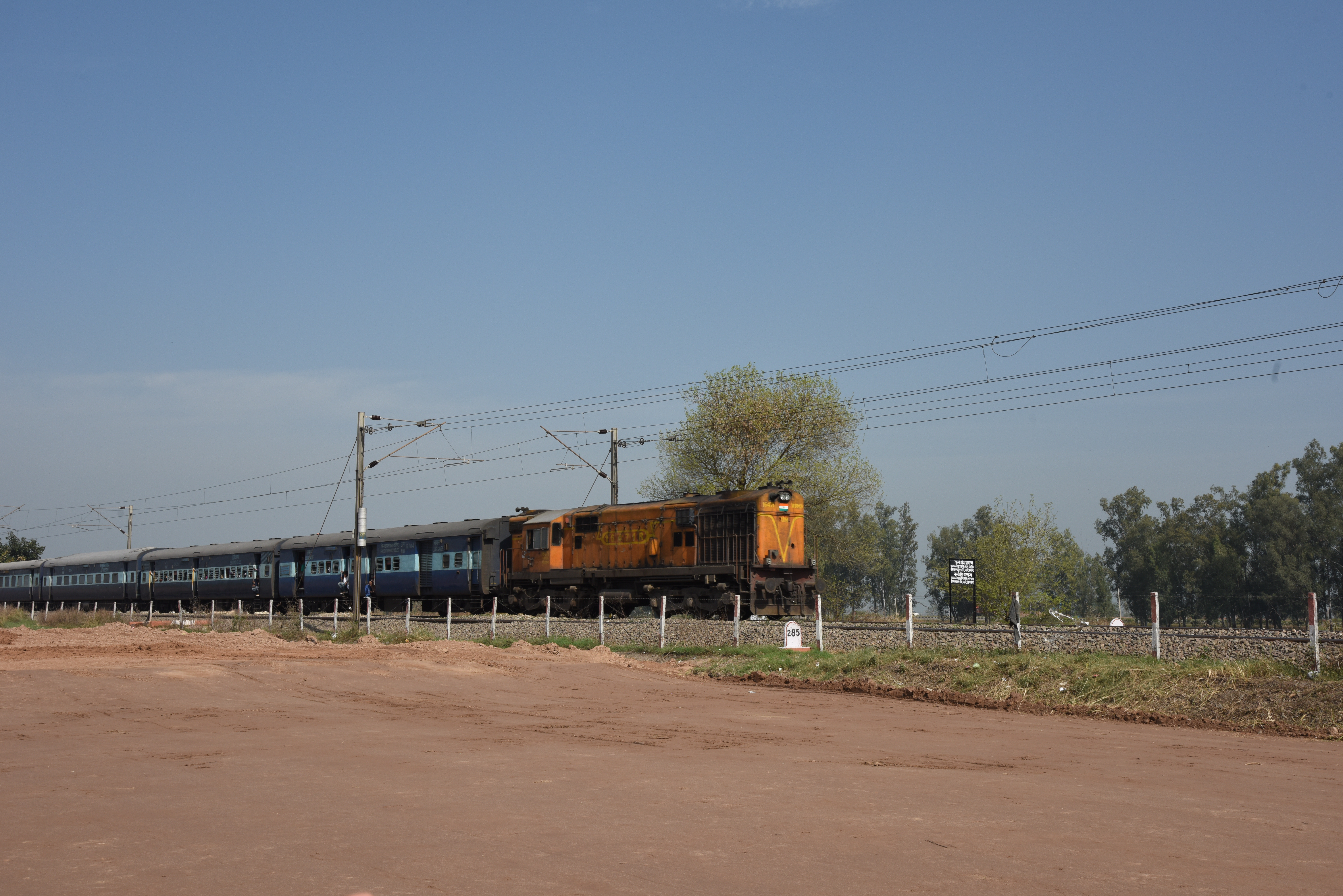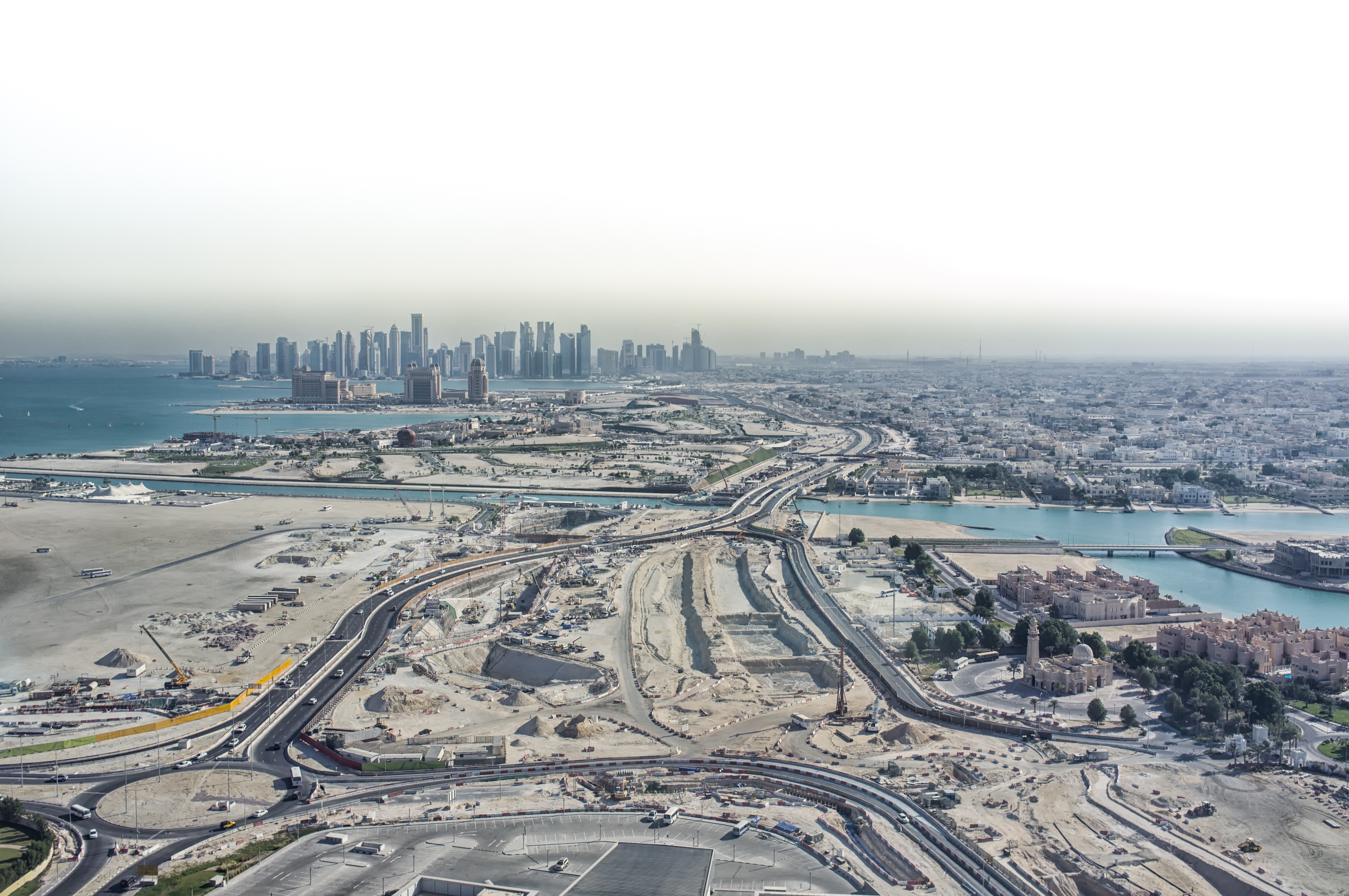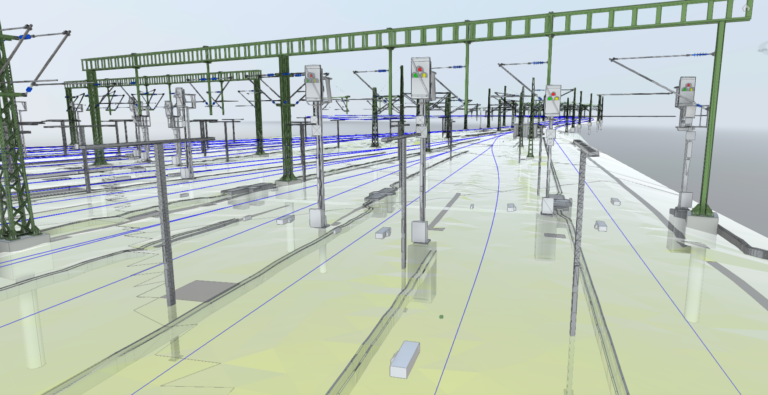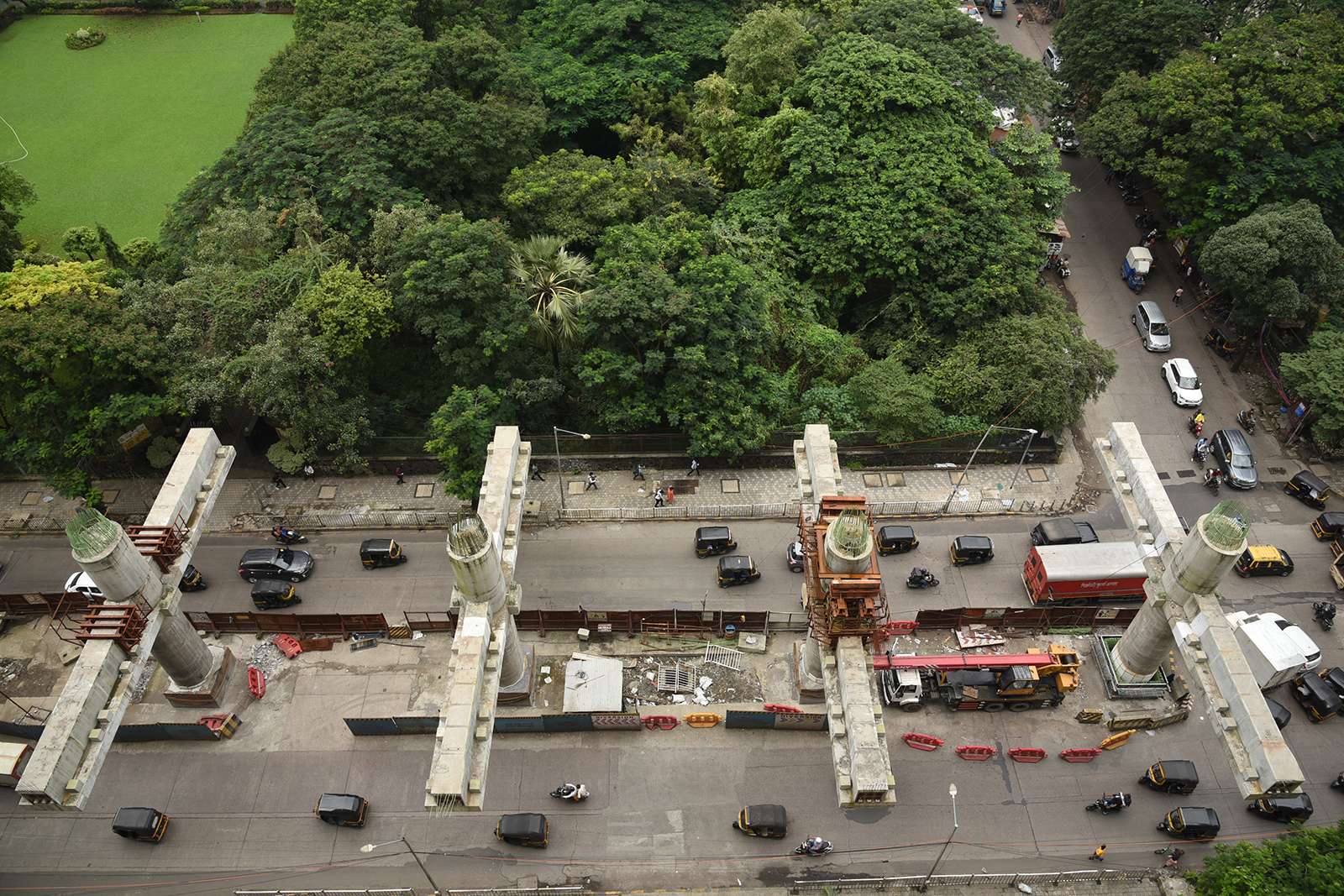
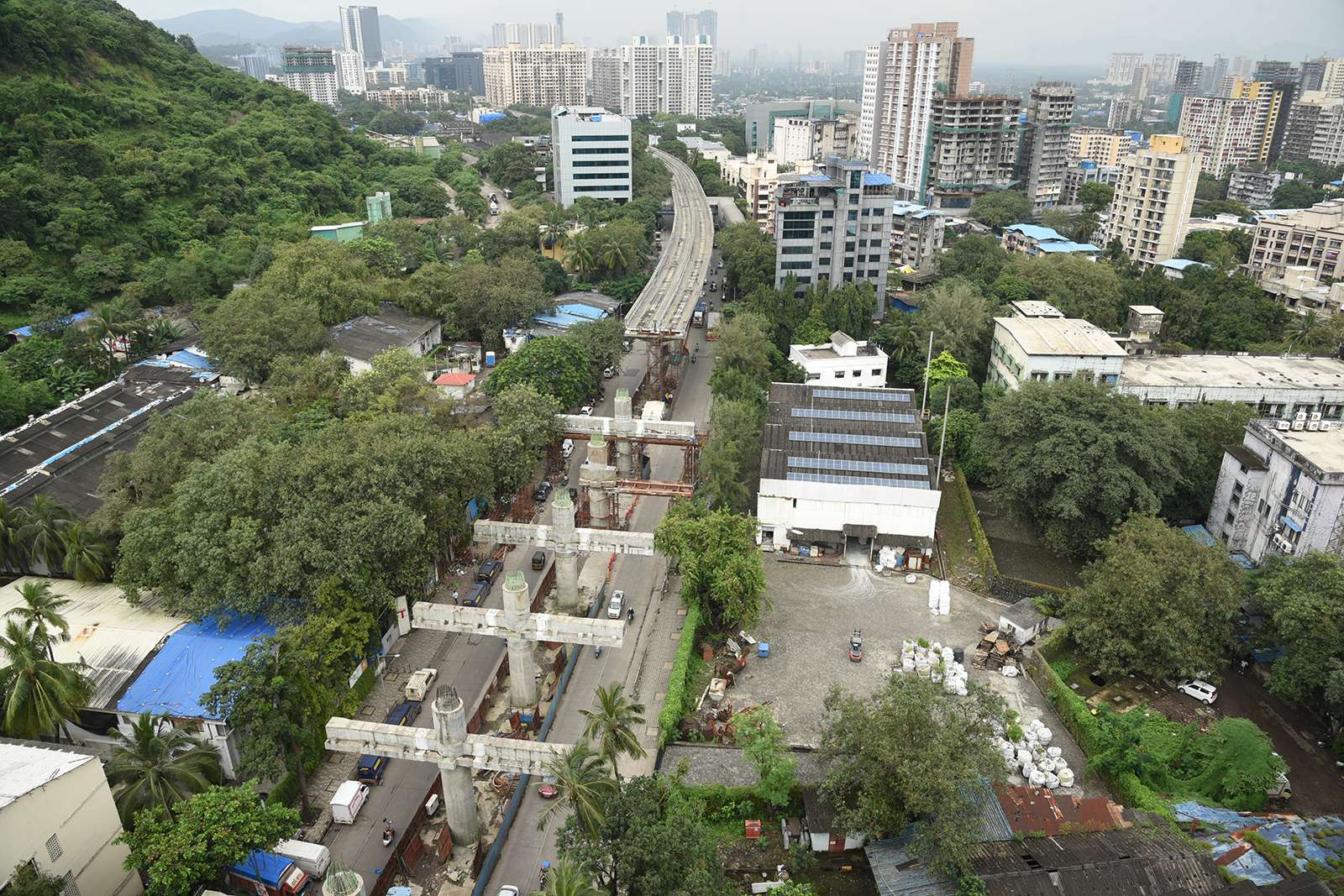
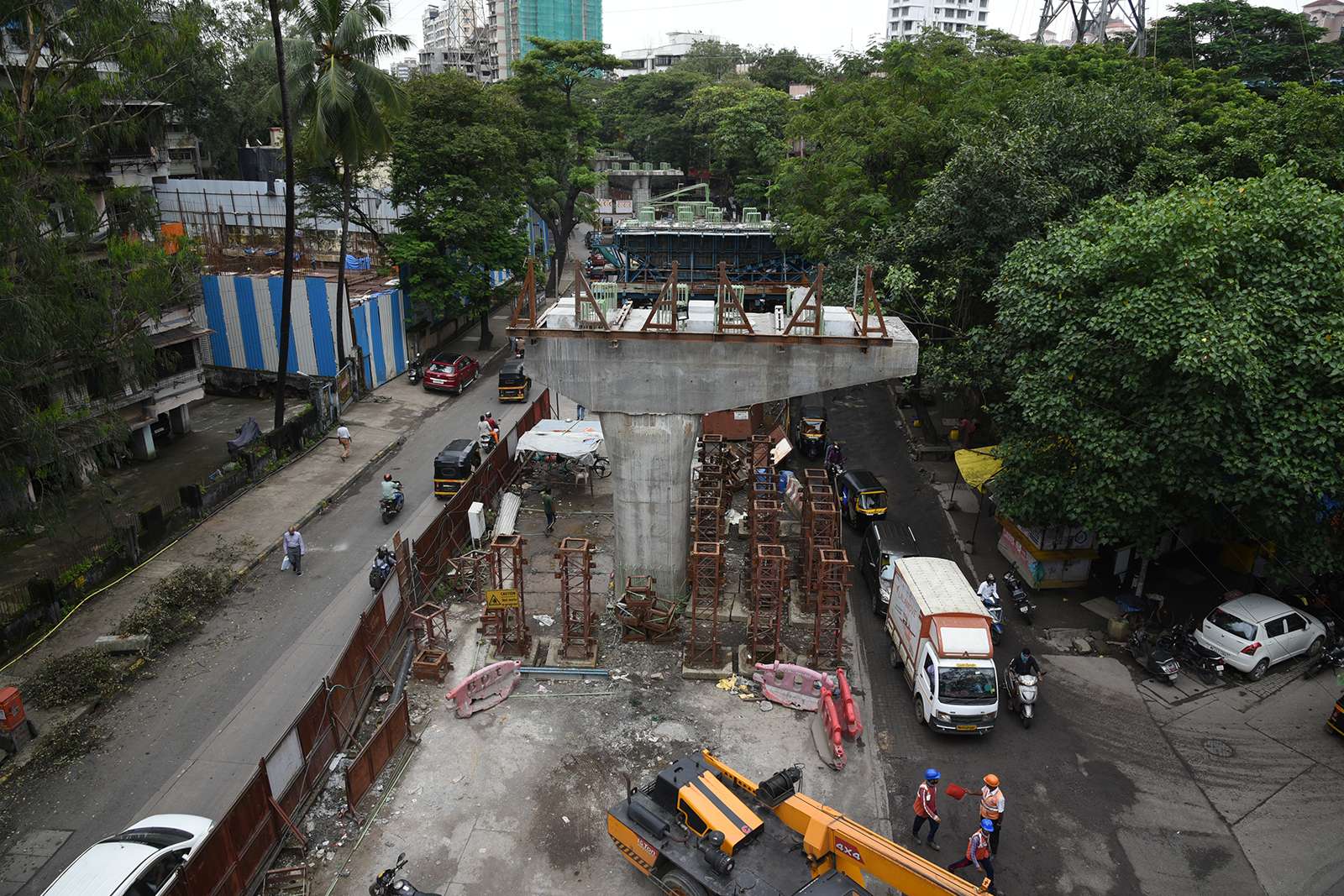
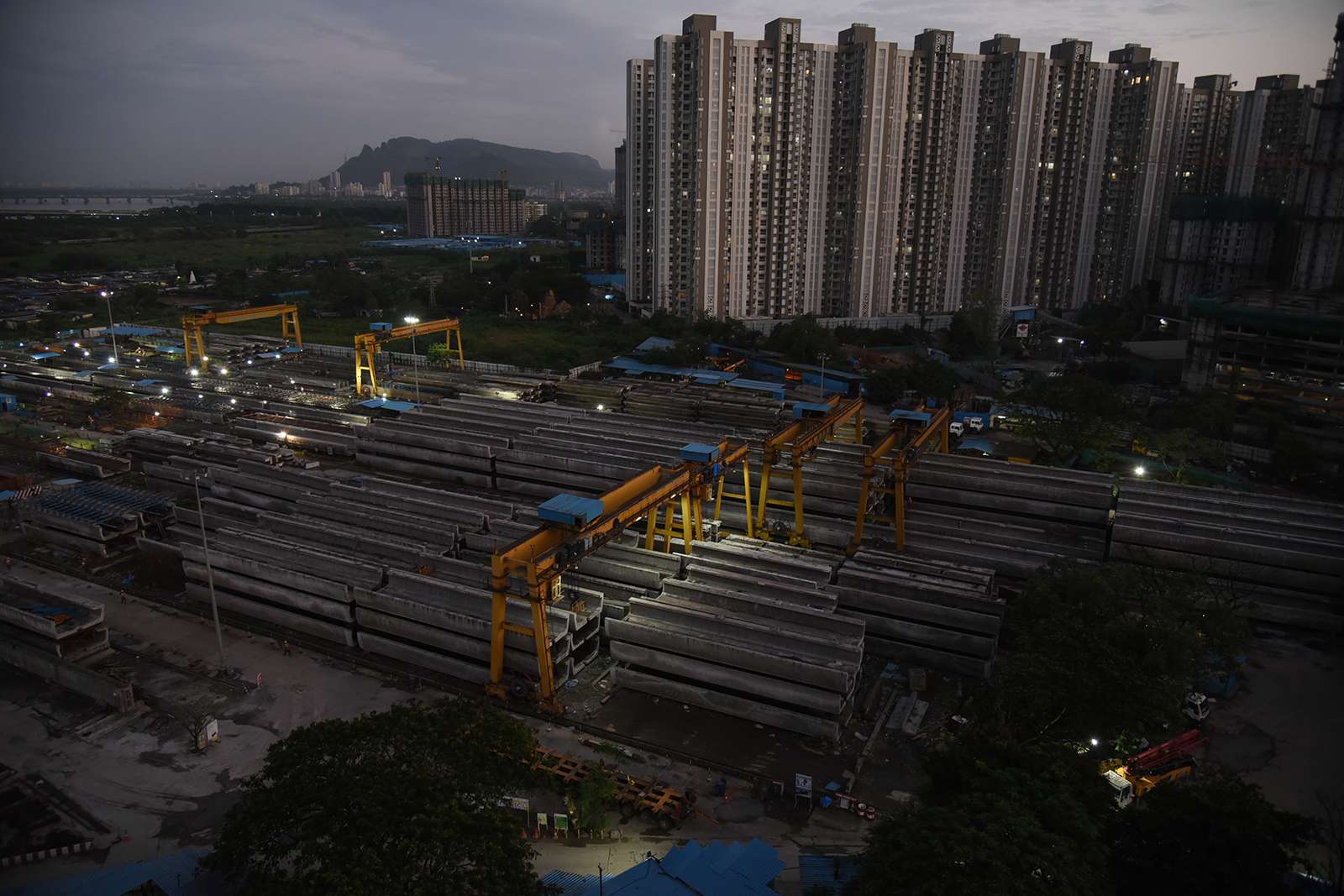
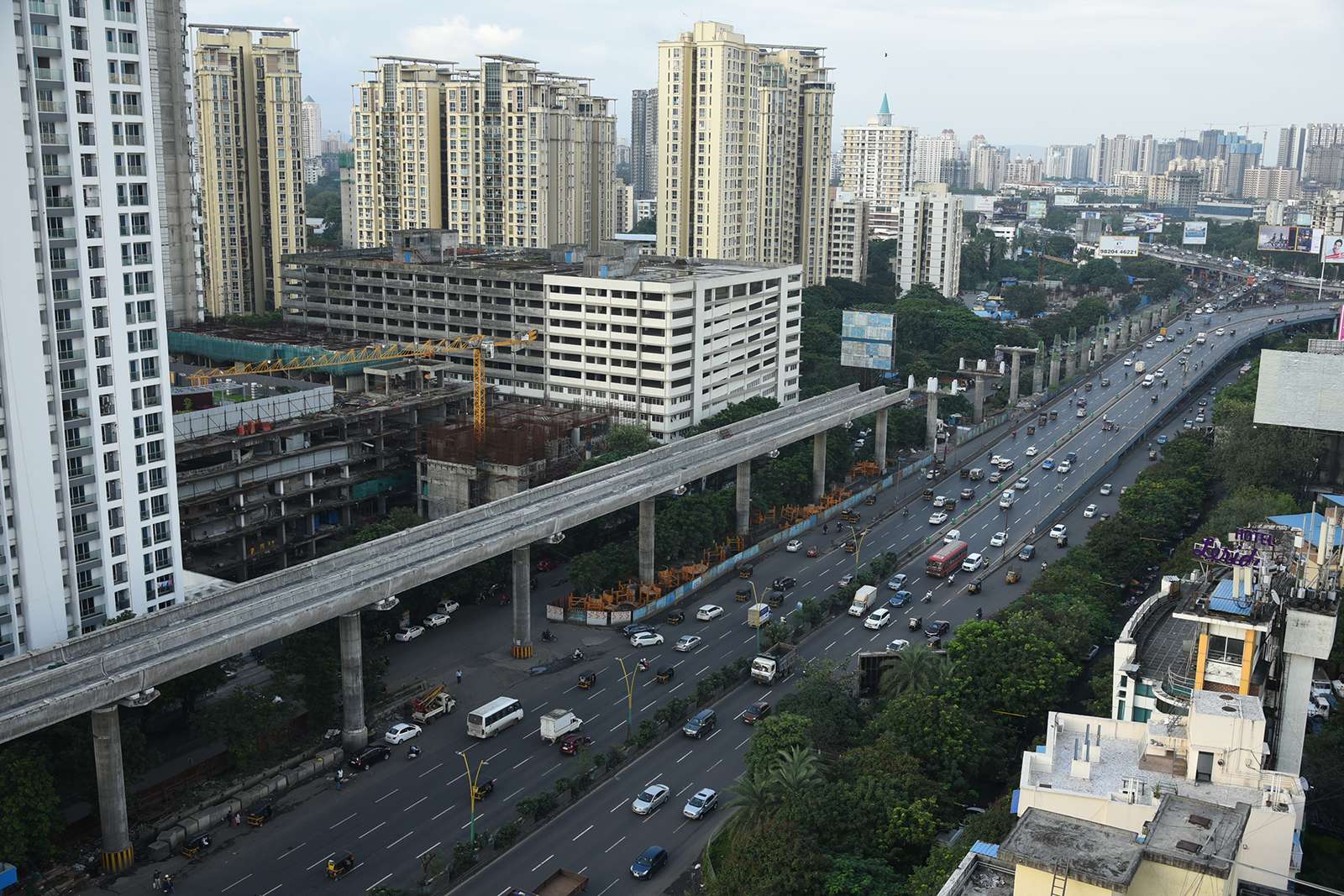
Mumbai Metro, India
Mumbai is the second-fastest growing city in India. Its population is estimated to reach nearly 28 million by 2030, making it the fourth most populous metropolitan area in the world. Due to Mumbai’s rapid growth, road and rail infrastructure development has not been able to keep pace with the increasing demand over the last decades. As a result, the Mumbai Metropolitan Region Development Authority (MMRDA) unveiled a master plan in 2004 to provide mass rapid transit services. The system is designed to reduce traffic congestion in the city and supplement the existing network.
Mumbai Metro Line 4 is a new metro line connecting Wadala to Kasarvadavali. The line consists of a 35.26 km elevated double track viaduct (U-girders) and includes a total of 30 stations.
In 2019, the line was extended by two stations to Gaimukh as Line 4A via an additional 2.66 km viaduct. The project was awarded to a consortium made up of DB Engineering & Consulting, Hill International and Louis Berger as an extension of the existing general consultancy contract.
The project includes civil infrastructure features such as elevated viaducts, stations, and depots with attached workshops, and rail systems such as tracks, signaling, telecommunications, power supply, automated fare collection and overhead contact line systems.
The metro line will provide a fast, convenient, reliable and safe mode of transport from Wadala – Ghatkopar – Mulund – Thane – Kasarvadavali to Gaimukh using the latest CBTC GoA4 technology.
Completion of the Mumbai Metro Line 4 project is crucial for increasing the capacity of the transport network and accommodating the city’s steadily growing population. Once fully operational, the line will carry 1.22 million passengers every day.
Mumbai Metro Line 10 is planned to be an elevated metro rail line in the length of 9.21 km extending from Gaimukh to Shivaji Chowk (Mira Road), with 4 elevated stations.
Mumbai Metro Line 12 will also be an elevated metro line with a total length of 20.76 km, reaching from Kalyan to Taloja and including 17 elevated stations. The depot is planned to be placed near the Pisarve Depot station, on a 20 ha plot of land.
The projects will provide rail systems such as tracks, signaling, telecommunications, power supply, automated fare collection and overhead contact line systems as well as civil infrastructure such as elevated viaducts, stations and depots with attached workshops.
Both lines are planned to be provided with a standard gauge of 1435 mm and 3200 mm wide rolling stock and to operate at maximum safe speed of 90 km/h.
The metro lines will provide a much faster and safer mode of transport from Gaimukh to Shivaji Chowk (Mira Road) and Kalyan to Taloja, also using the CBTC GoA4 technology.
Consortium takes on the role of engineer
DB Engineering & Consulting and its consortium partners are representing Mumbai Metropolitan Region Development Authority (MMRDA) in the role of engineer as defined in the framework agreement. Responsibilities include overall project management, design, assistance with procurement, construction management, construction supervision, system integration, interface management, testing and commissioning.
Project data at a glance
Mumbai Metro Line 4
- 26 km of elevated viaduct
- 32 stations, including 6 interchange stations with various other lines of Mumbai metro rail
- 1 depot with an attached workshop along with an operations control center (OCC) and backup control center (BCC) in Kasarvadavali
- Standard gauge (1435 mm)
- 3200 mm wide rolling stock
- 25 kV AC overhead equipment traction
- Communication-based train control (CBTC) signaling system with Grade of Automation 4 (GoA-4) including depot operations
- Automated fare collection and platform screen doors
- Passenger transport stations
- Power supply installation
- New-build line
- Superstructure system: slab track, ballast track, special construction
- Number of tracks: 2
- Line length: 35.26 km
- Design speed: 90 km/h
- Metro
- Line length: 35.26 km
- Electrified
- Design speed: 90 km/h
- Number of lines: 1
- Number of tracks: 2
- Number of stations: 32
- Individual specification: elevated metro rail
- Repair work facility (complete overhaul)
- Equipment: maintenance and repair facility, measuring, test and inspection facility
- Maintenance and re
- Auxiliary building
Mumbai Metro Line 10 and 12
- 4 elevated stations (Mumbai Metro Line 10) and 17 elevated stations (Mumbai Metro Line 12)
- Depot at Pisarve Depot Station (Metro Line 12)
- Standard gauge (1435 mm)
- 3200 mm wide rolling stock
- Communication-based train control (CBTC) signaling system with Grade of Automation 4 (GoA-4) including depot operations
- Automated fare collection and platform screen doors
- New-build line
- Line length: 9.21 km (Metro Line 10) and 20.76 km (Metro Line 12)
- Superstructure system: slab track, ballast track, special construction
- Number of tracks: 2
- Design speed: 90 km/h
- Metro
- Design Speed: 90 km/h
- Number of lines: 1
- Number of tracks: 2
- Individual specification: elevated metro rail
- Maintenance and Repair depot
- Auxiliary building
Scope of services for Metro Lines 4, 10 and 12:
- General consultancy includes all aspects of project implementation from concept to commissioning
- General consultant prepares specifications, evaluates bids and reviews detailed designs, oversees rail system fabrication and installation, and testing and commissioning of rail systems until commissioner for metro rail safety (CMRS) certification for passenger service is obtained
- General consulting and project management support to the client on technical, organizational and contractual issues related to general consulting for the metro rail in the following phases:
- Preliminary design and tender support
- Proof checking of detailed design
- Construction supervision
- Rolling stock
- Traction power supply
- Signaling and telecommunications
- Quality control
- Testing and commissioning
- Operation and maintenance support (Mumbai Metro Line 4)
- All the above services are being provided within the framework of a consortium agreement
